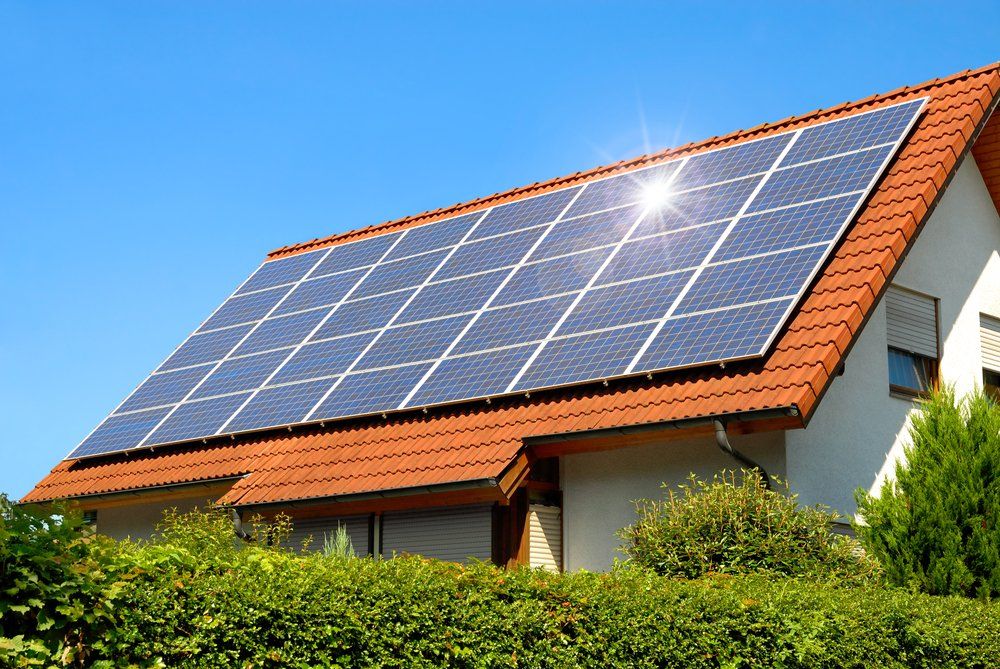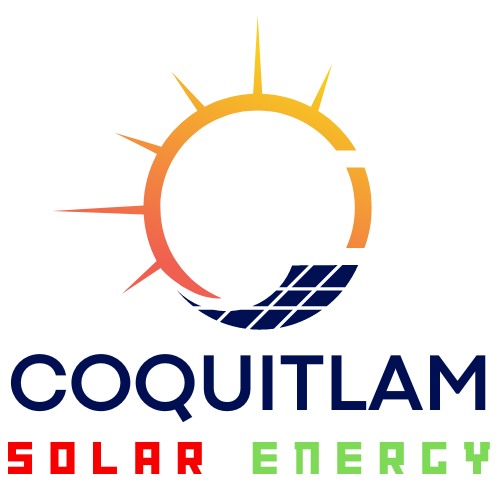Ground-Mounted vs. Rooftop Solar Panels For Home: Cost, Size, and Capacity
As homeowners realize the environmental benefits and long-term cost savings of renewable energy, solar panels are becoming more popular.
The province of British Columbia ranks high among Canada's renewable energy producers. Natural Resources Canada reports that the average BC solar system generates 1004kWh per kW per year.
With more and more homes going solar, it is essential to know the difference between ground-mounted and rooftop solar panels for home. Each type has pros and cons, especially in cost, size, and capacity.
Expert installation is essential for rooftop solar panel safety, efficiency, and longevity. If you are a homeowner looking for information about solar panels, this article will review the differences between the two options.
Solar Panel Overview: Ground-Mounted and Rooftop
Ground-Mounted Panels
Ground-mounted solar panels are tilted to capture maximum sunlight by a support structure. These systems can be fixed or have tracking mechanisms that adjust panel orientation to follow the sun.
- Rooftop solar has 51%-57% lower energy payback time (EPBT) than ground-mounted.
- Large Properties. Ideal for large-lot homeowners who can dedicate part of their property to solar.
- Positioning Flexibility. Useful when shading, orientation, or structural issues prevent solar panel installation on the roof.
- Agricultural Uses. Commonly used in large, open farms with high energy needs.
Rooftop PV Panels
Residential buildings often have rooftop solar panels mounted directly on the roof. These systems are mounted on racks for optimal tilt angle and can be installed on flat and pitched roofs.
- Compared to rooftop systems, ground-mount systems achieved carbon payback time (CPBT) which was 378%-428% higher for identical modules.
- Urban and Suburban Homes. Ideal for homes with limited yard space, where solar panels are best installed on the roof.
- Aesthetic Integration. Preferred by homeowners seeking seamless solar energy system integration.
- Effective Space Use. Using roof space avoids the need for solar infrastructure land.
Comparing the Prices: Ground-Mounted vs. Rooftop Panels
Costs of Initial Installation
| Solar Panel Type | Expenses Needed | Cost in CAD |
|---|---|---|
| These systems cost more to install due to materials and labour. | $3-5 per watt. A 10 kW system costs CAD 30,000–50,000. | |
| Ground-Mounted Solar Panels | Requires land clearing and levelling. Fencing and trenching for electrical wiring is also needed. | $2,000 - 5,000 |
| Costs of mounting structures depend on complexity and materials. | $1,000 to 3,000 per kW. A 10 kW system can cost $10,000 - $30,000. | |
| This panel system usually costs less than its other alternative. | $2.50 to $4 per watt. $25,000–40,000 for a 10kw system. | |
| Rooftop Solar Panels | The weight of panels and racking systems may require roof reinforcement on older roofs. | $1,000 to $5,000, depending on the extent of the changes. |
| Rooftop solar panel racking and mounting hardware. | $0.20 to $0.50 per watt. $2,000 - 5,000 for a 10 kW system. |
Expenses for Upkeep and Operations
Maintenance
- Ground-mounted systems. Cleaning panels, trimming vegetation, and inspecting mounting structures are regular maintenance tasks. Maintenance costs average CAD 500–1,000 per year.
- Rooftop systems. Generally require less maintenance but are more complex and more expensive to access. Regular inspections and cleaning cost CAD 300–CAD 800 per year.
Operational Costs
- Ground-mounted systems. Yard work and pest control can cost CAD 200 to CAD 500 per year for ground-mounted systems.
- Rooftop systems. Cheaper because they do not require land maintenance. However, roof repairs or replacements can be complicated and cost $500 to $2,000.
Comparing Size and Space Requirements
Utilization and Availability of Space
Ground-Mounted Panels
- Ground-mounted solar panels require a lot of yard space. They may require 100 square feet per kW of installed capacity.
- On average, a 10 kW system requires 1,000 square feet of land.
- A benefit of ground-mounted systems is panel arrangement flexibility.
- Regardless of roof orientation or nearby shading, panels can be oriented and tilted to maximize sunlight.
Rooftop Panels
Using roof space for solar panels benefits homes with limited yard space. The maximum solar system size depends on roof space. Assuming 15 square feet per panel and standard efficiency ratings, a typical residential rooftop can accommodate 400 to 600 square feet of panels or 5 kW to 7.5 kW.
The roof's size, shape, and orientation can significantly affect solar panel layout. Multiple-angle roofs, dormers, chimneys, and skylights may reduce panel installation area.
Aesthetic and Property Impact
Ground-Mounted Panels
- Property Visibility. On property, ground-mounted systems are more noticeable. This visibility may concern homeowners who prefer a more discreet installation.
- Possible Gardening Integration. Landscapers can integrate ground-mounted panels. Homeowners can use solar arrays to shade outdoor activities or design gardens.
Rooftop PV Panels
- Minimal Visibility. Less visible from ground level, maintaining yard and property aesthetics. This is beneficial in residential areas where curb appeal is essential.
- Maintains Yard Space. Free up yard space for gardening, recreation, or additional structures. This is useful in urban and suburban areas with limited outdoor space.
Evaluating Solar System Capacity and Efficiency
Capabilities for Energy Production
Ground-Mounted Panels
- Can be precisely oriented and tilted for maximum sunlight exposure.
- This optimization can produce more energy than rooftop installations.
- Have a capacity factor of 20% to 30%, producing 1,600 to 2,400 kWh per installed kW per year in Canada.
Rooftop Panels
Roof pitch and orientation limit rooftop installations. Rooftop systems can produce 1,200 to 2,000 kWh per installed kW in Canada with a capacity factor of 15% to 25%, depending on these factors.
Rooftop systems may be shaded by nearby buildings or vegetation, reducing energy production at certain times. Shade losses can range from 5% to 20%, depending on severity and duration.
Considerations for Efficiency
Ground-Mounted Panels
- Better Airflow and Cooling. Airflow helps ground-mounted panels dissipate heat and operate at lower temperatures. This cooling improves panel efficiency by 5% to 10%.
- Flexible Installation. Homes can maximize energy production and offset sunlight intensity by seasonally optimizing tilt angle.
Rooftop Panels
- Roof Material and Ventilation Effects. Rooftop systems depend on roof ventilation and heat retention. Depending on roof characteristics, elevated temperatures can reduce efficiency by 3% to 8%.
- Limited Cooling. Rooftop panels are closer to the roof surface, reducing airflow and raising operating temperatures.
Expandability Potential
Ground-mounted systems are scalable and expandable. Based on on-site preparation and mounting, expansion costs CAD 1.50 to CAD 3 per watt.
- Additional panels can be added to ground-mounted arrays without significant changes.
- This modular approach allows phased solar capacity investments, each increasing energy production and cost savings.
Available roof space limits rooftop system expansion. If the roof is complete, expansion may require structural changes or carports or ground-mounted arrays.
- Roof structural capacity may need to be assessed before adding more panels.
- Reinforcing the roof structure may be required to support additional weight.
- For each kW of capacity added, structural upgrades can cost CAD 1,000–CAD 3,000.

Choose and Install Solar Panels with Experts
Choosing between ground-mounted and rooftop solar panels requires knowing your needs. Consider space, aesthetics, and long-term energy goals when making a decision.
Homeowners should consult a reliable solar company for customized advice and recommendations. With Coquitlam Solar Energy, you can maximize clean energy benefits and savings through expert PV services for your solar panel system.
Frequently Asked Questions
What financial incentives and programs do I have in Canada to install my solar energy systems?
Federal Incentives
The Canada Greener Homes Grant covers solar power system installation up to CAD 5,000. Although now closed, Canada Greener Homes Loans provide interest-free loans up to CAD 40,000 for energy-efficient home upgrades that include installing solar panels.
Provincial Incentives
Rebates and incentives are available in Alberta and Nova Scotia. Alberta's Residential and Commercial Solar Program rebates up to CAD 0.90 per watt, lowering the cost of a 10 kW system by CAD 9,000.
Net Metering
Most provinces allow homeowners to sell excess solar power energy to the grid through net metering. This can reduce electricity bills and boost ground-mounted and rooftop system ROI.
How can experts assist me in selecting the most suitable solar panel systems for my needs?
Expert solar installers can assess shading, roof orientation, and structural capacity through National Renewable Energy Laboratory standards. Professional installers have detailed analyses and recommendations.
- Energy Audit. They conduct an energy audit to assess current and future energy use. It helps size the solar power systems and optimize the electricity generated.
- Expert Installation. Install solar energy with certified professionals. Correct installation ensures system efficiency, safety, and longevity.
- Maintenance Schedules. They create a maintenance plan to keep panels clean and working. Ground-mounted systems need more maintenance, while rooftop systems need debris and shading checks.
- Consult and Customize. Solar energy consultants customize the system. They can recommend best practices, configurations, and financial planning to maximize ROI based on how much your solar panels cost.
Is it possible to employ both rooftop and ground-mounted solar panels on my property?
Yes, it is possible to maximize energy production by combining ground-mounted and rooftop solar panels. If you want to maximize your solar capacity, this hybrid solar panels save more energy by using different parts of your property to their fullest potential.
CONTACT
Telephone: 604-337-1958
E-mail: info@coquitlamsolarenergy.ca
LOCATION
Coquitlam, BC V3B 0A4, Canada
Coquitlam Solar Energy | All Rights Reserved | 2023
